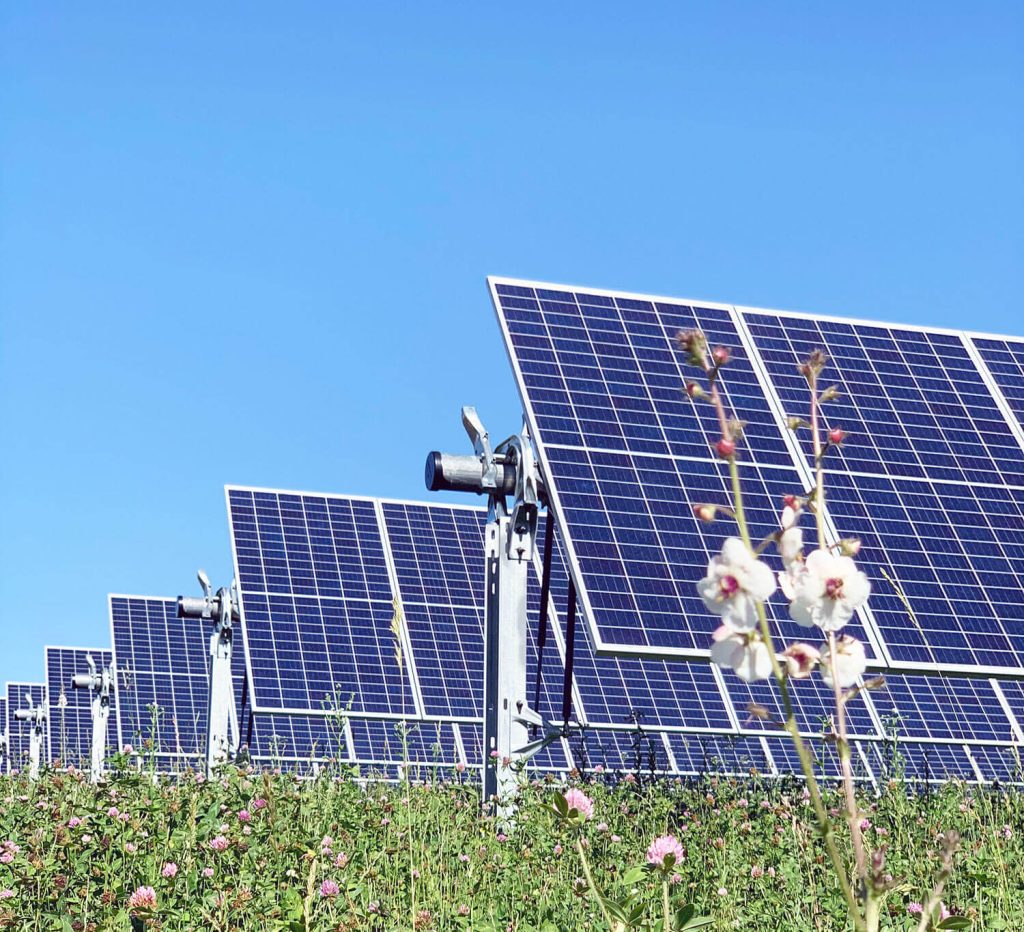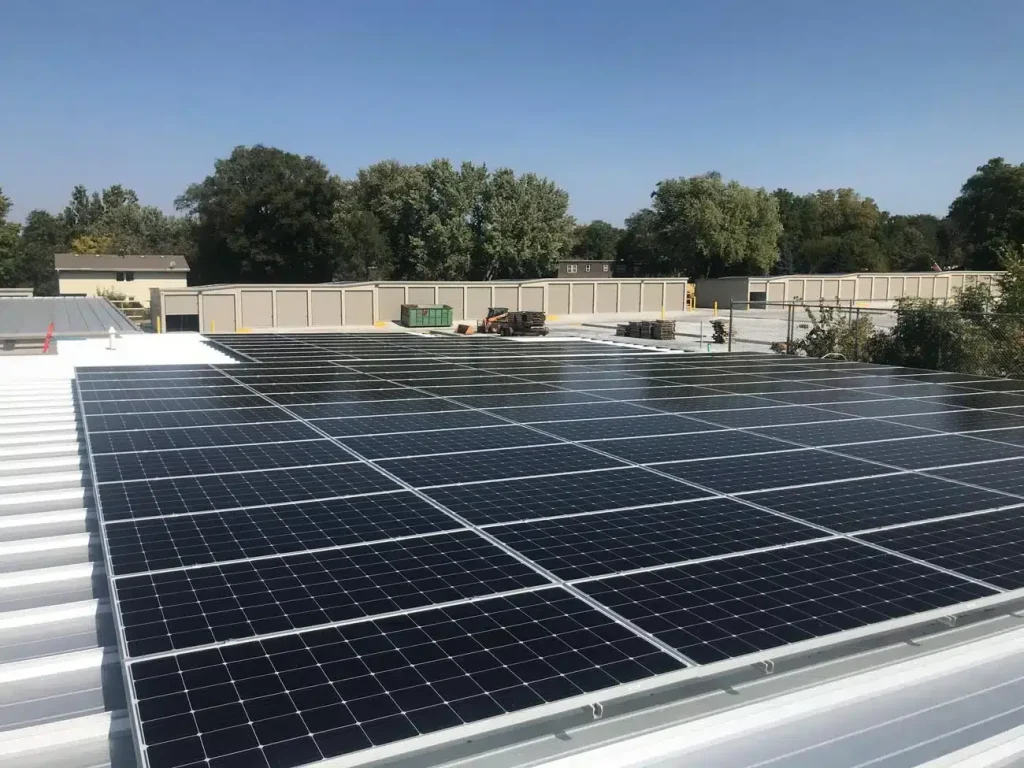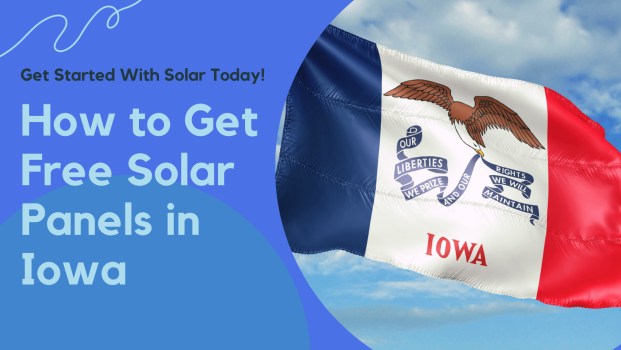The allure of “free” solar panels can capture the imagination of many homeowners in Iowa, conjuring visions of harnessing the sun’s power without dipping into savings. However, the term “free solar panels” is often a misnomer that can lead to misconceptions. In truth, the economics of solar energy are more nuanced, and understanding the real meaning is vital for anyone considering a shift to renewable energy.
As you delve into the realm of solar installation in the Hawkeye State, it’s essential to uncover the layers behind the enticing offer of “free” solar panels. What often lies beneath is a lease or a power purchase agreement (PPA) where, indeed, no upfront costs might be required, but there are long-term agreements and financial implications to consider.
Navigating these options requires a clear head and informed decision-making. By continuing to read, you will learn about the various incentives, tax credits, and financing options available in Iowa that make solar power a compelling and cost-saving proposition. With each paragraph, you’ll gain insights into the true cost, savings, and value of solar installations, cutting through the fog of “free” and steering towards the sunny opportunity of making a wise investment in your future and the planet’s. Let’s illuminate the facts together, and explore how ‘free’ can be a route to genuine savings with solar installation in Iowa.
Are “Free Solar Panels” Really Free?
When you come across the offer of ‘free solar panels,’ it’s essential to understand what this really entails. Although it may seem like you’re getting solar panels without any cost, the reality is that there is no outright ownership involved. Instead, you’re engaging in a solar lease or a Power Purchase Agreement (PPA), where a solar provider installs panels on your home at no initial charge. However, the term ‘free’ only refers to the zero upfront installation costs.
In a solar lease, you pay a fixed monthly fee to ‘rent’ the use of the solar panels. This fee is often lower than your typical electric bill, providing some savings on your monthly energy expenses. Although you do not own the panels, you benefit from the renewable energy they produce, which can be particularly appealing if you want to reduce your carbon footprint without a significant investment.
A PPA operates slightly differently. Instead of paying a rental fee, you agree to purchase the electricity generated by the installed solar panels at a set per-kilowatt-hour (kWh) rate. This rate is typically lower than what your local utility company charges and is usually fixed, protecting you from future increases in electricity prices.
In Iowa, as is the case elsewhere, these alternatives may come with long-term agreements, typically spanning 20 to 25 years, with the solar company maintaining ownership and responsibility for the maintenance of the solar system. While these arrangements can provide a more accessible path to using solar energy, they do not grant you the potential benefits of owning a solar system outright, such as the increase in home value and eligibility for certain tax credits or rebates.
If you’re considering ‘free solar panels’ for your property in Iowa, weigh the benefits of potentially lower energy costs against the long-term commitment and the fact that you won’t own the system. It’s also wise to compare these options to the cost and benefits of purchasing a solar system, which can offer different financial incentives and greater energy independence in the long run.
What Do Companies Mean When They Refer to Free Solar Panels?
When you’re in Iowa and hear the phrase ‘free solar panels,’ it can be quite enticing. It suggests that you might be able to harness the sun’s power without a significant investment. Let’s break down what companies usually mean by this offer and how it translates for you, the consumer.
Firstly, “free solar panels” typically refers to a solar lease or power purchase agreement (PPA). These are arrangements where the solar company installs panels on your property at no upfront cost to you. It sounds fantastic, but here’s the detail: you don’t own the panels. Instead, you agree to purchase the energy they produce at a reduced rate compared to your utility company, or you pay a fixed monthly fee for the equipment.

- Solar Leases – With a lease, you’re essentially renting the solar panel system for a set period, often 20 to 25 years. You enjoy lower electricity bills without the responsibility of maintaining the system. However, because you’re not the owner, you won’t benefit from federal tax incentives, and it can be challenging if you decide to sell your home.
- Power Purchase Agreements (PPAs) – PPAs are similar to leases, but you pay for the power, not the panels. The per-kilowatt-hour rate you pay is usually lower than the grid’s rate, and it typically locks in energy costs for the duration of the agreement. Like leases, you won’t get tax credits and selling your home can be complicated with a PPA attached.
Another term you might come across is ‘zero-down solar’. While this also indicates no upfront costs, it’s often associated with solar loans. You spread the cost of the panels—plus interest—over a number of years. However, with solar loans, you own the system, allowing you to claim tax credits and eventually enjoy free electricity once the loan is paid off.
Lastly, remember that ‘free’ never truly means without cost. Maintenance (though often covered by the company), potential for less home flexibility, and the stipulation to buy the energy produced can add up. Before signing on that dotted line for what seems like a gift of light from the sky, scrutinize the offer, understand your long-term commitments, and weigh up the potential savings against the limitations of such agreements.
As a sun-seeker in Iowa, being savvy about these solar offerings can ensure you make a choice that’s as bright as the energy you’re looking to capture. Always read the fine print and consider consulting with a solar expert or a financial advisor to illuminate the best path forward for your sun-powered ambitions.
PPA Agreements
Power Purchase Agreements, or PPAs, are financial arrangements specifically designed for the sale of electricity between two parties – in the context of solar energy, between a solar power provider and a homeowner or business owner. In the state of Iowa, PPAs have become an attractive option for those looking to harness solar energy without the high upfront costs of purchasing a system outright.
With a PPA, the solar provider installs a solar energy system on your property at their own expense. In return, you agree to purchase the power generated by the system at a set rate, usually lower than the local utility’s rate, for a determined period. This agreement benefits those not ready to invest in a solar system but interested in utilizing renewable energy and reducing their power bills.
The pros of entering into a PPA for homeowners in Iowa include
- No Upfront Costs: You can go solar without the significant initial investment required to purchase a system.
- Fixed Energy Prices: PPAs typically guarantee a fixed rate for electricity, which can protect you from rising energy costs in the future.
- Low Maintenance: The responsibility for maintenance and repairs usually falls on the solar provider, not the homeowner.
- Accessibility: PPAs can make solar energy accessible to more people, including those who might not have the financial means to buy a system or do not qualify for solar loans.

Conversely, there are potential downsides
- Long-Term Commitment: PPAs often involve long-term contracts that might extend up to 20 years, which could complicate selling your home.
- Reduced Savings: Over time, the cost-savings may be less compared to owning a system, as you continue to pay for the electricity produced.
- Less Control: The solar provider has ownership and, thus, decisions regarding the system remain largely out of your hands.
- No Tax Benefits: You’re not the owner of the system, so you can’t take advantage of tax credits and incentives available for solar investment.
Comparing PPAs to buying or leasing solar panels brings up several key differences. When you buy a solar panel system outright, you:
- Become the system owner, allowing you to claim any state or federal tax incentives.
- Typically see a higher return on investment over the long term due to lower costs after recouping the initial purchase.
- Can increase the value of your home with the addition of owned solar assets.
Leasing a solar panel system is akin to a PPA in that there are usually no upfront costs, and maintenance is handled by the provider. However, with a lease:
- You pay a fixed monthly fee for the use of the system, regardless of how much electricity is produced.
- You might have the option to purchase the system at the end of the lease term.
- You still do not receive tax benefits, as you are not the system owner.
Choosing among a PPA, buying, or leasing solar panels in Iowa depends on your financial situation, home ownership plans, and your desire for control over the energy system. PPAs and leases offer more accessible entry points to solar energy with less personal responsibility, whereas buying provides greater long-term financial benefits and complete autonomy over the system. It’s always wise to consider these options closely and seek personalized advice before making a decision.
Solar Leases
Solar leases offer a way for homeowners in Iowa to harness solar energy without the upfront cost of purchasing a system outright. Essentially, a solar lease is a long-term agreement where a homeowner rents the solar system from a leasing company.
Here’s how it typically works:
- A solar provider installs panels on your home at no upfront cost.
- You pay a fixed monthly rent for the use of the system over the lease term, usually 20 to 25 years.
- The solar system generates electricity for your home, potentially reducing your monthly utility bill.
Benefits of solar leases for Iowan homeowners include:
- No or Low Upfront Costs: You can start generating solar energy without a significant initial investment.
- Reduced Energy Bills: Your solar system could generate enough power to lower your monthly utility costs.
- Maintenance: Generally, the leasing company is responsible for the maintenance and repairs of the system.
- Easy Adoption: Leasing offers a straightforward way to go solar without worrying about system performance or upkeep.

However, there are also drawbacks to consider
- Long-term Commitment: Exiting a lease early can be costly if your circumstances change.
- No Incentives: You won’t be eligible for federal tax credits, which go to the system’s owner, not the lessee.
- Potential Real Estate Complications: Selling your home can require you to buy out the lease or persuade the buyer to take it over.
When it comes to long-term costs and savings, here are some key points
– Monthly Payments: These can add up over the contract length, sometimes surpassing what you might have paid with a loan or cash purchase.
– Energy Savings: Savings on your energy bill can be significant over time, but they might be less than if you owned the system and benefited from all the energy it produces.
– Home Value Increase: While owned solar systems can increase home value, leased systems do not always have the same effect and might complicate the selling process.
Iowan homeowners should weigh these factors and consider their long-term residency and financial goals. A solar lease could yield monthly utility savings, but with the potential trade-off of missing out on full ownership benefits and facing long-term financial commitments. If you’re aiming for immediate savings with minimal responsibility for maintenance, a solar lease could be a practical option. However, if your plan is to maximize long-term financial benefits and home value, purchasing the system might be more advantageous.
Zero-down Solar Loans
Zero-down solar loans are a financial product that enables homeowners in Iowa to install solar panels without any upfront payment. Instead of paying the full cost of the solar system upfront, the loan covers the purchase and installation costs, allowing the homeowner to repay the loan over time. This financing option is an alternative to paying cash for a solar installation or leasing the system, and it appeals to many because it reduces the initial barrier to adopting solar power.
Here are the benefits of zero-down solar loans:
- Immediate Savings: From the moment the panels are operational, homeowners can save on their electricity bills, often offsetting the loan’s monthly payments.
- Ownership Incentives: Homeowners qualify for federal tax credits, state incentives, and rebates because they own the system, unlike a lease.
- Increased Home Value: Solar panels can increase property value, which becomes a selling point should the homeowner decide to move.
- Flexible Terms: Loan terms can vary, allowing homeowners to choose the best fit for their financial situation.
However, there are potential risks to consider:
- Long-term Commitment: Solar loans typically involve long repayment periods. If you’re not prepared for a financial commitment of that duration, it might pose a problem.
- Credit Dependency: Eligibility and interest rates depend on your credit score, potentially making the loans less affordable for those with poor credit.
- No Immediate Ownership: Until the loan is fully repaid, the homeowner, while considered the system owner, is indebted to the lender, which may include additional interest costs over the life of the loan.
Navigating these options requires careful consideration of your financial situation and energy needs. While zero-down solar loans can make solar energy accessible without the need for significant initial capital, it is essential to weigh the long-term financial implications and ensure that the chosen solar setup aligns with your energy consumption patterns and financial goals. Always compare different loan offers and understand the terms before committing to this eco-friendly investment.
Can You Get Free Solar Panels From the Government?
The U.S. government does not directly offer free solar panels to individuals, including residents of Iowa. However, there are several federal and state initiatives that can significantly reduce the cost of solar panel installation through incentives and subsidies.
One of the primary federal incentives is the Solar Investment Tax Credit (ITC), which allows homeowners and businesses to deduct a portion of their solar installation costs from their federal taxes. The ITC has been a major driver of solar adoption across the country.
In the state of Iowa, residents may also have access to additional state-specific incentives for installing solar panels:
- Solar Energy System Tax Credit: Iowa offers its own state tax credit for solar energy systems, which is available for both residential and commercial installations. The credit is calculated as a percentage of the installed cost of the solar system.
- Property Tax Exemption: Solar installations can also increase the value of your property, but in Iowa, residents can benefit from a property tax exemption for the added value that a solar system brings to a property.
- Net Metering: Though not a direct subsidy, Iowa’s net metering policy allows homeowners with solar panels to get credit on their utility bills for excess power their system generates and sends back to the grid.
It’s important to bear in mind that each program will have its own eligibility criteria, which might include factors like the size of the solar system, whether the applicant is a homeowner or a commercial entity, and specific installation requirements.

To access these incentives, you would typically need to:
- Engage with a certified solar installer who can provide detailed information about current incentives and help you determine your eligibility.
- Have the solar system installed according to all applicable codes and standards.
- Apply for the federal ITC by completing IRS Form 5695 and submitting it with your tax return.
- For state-specific incentives, check with the Iowa Department of Revenue or a local energy office to understand the application process and gather any necessary documentation.
Always consult with a tax professional or a solar energy expert who is up-to-date with the latest information on incentives and can provide personalized advice based on your situation. Keep in mind that solar incentives can change, so it’s crucial to get current information when considering solar installation.
Iowa Solar Incentives, Tax Credits, and Rebates to Reduce the Upfront Cost
Solar incentives, tax credits, and rebates are financial benefits offered by various levels of government and utility companies to encourage homeowners to install solar panels. In Iowa, these incentives can significantly reduce the upfront cost of solar panel installation, making it a more affordable investment.
Homeowners can benefit from federal tax credits, which offer a percentage of the system’s cost as a credit on federal income taxes. Iowa also offers property tax exemptions that make it more economical to own a solar system, as well as local rebates and utility programs that may provide additional savings.
Net metering policies in Iowa allow homeowners to receive credits on their utility bills for excess energy their solar panels produce, further offsetting installation costs and monthly energy expenses.
By taking advantage of these incentives, Iowa homeowners can lower the initial costs of going solar, quicken their investment’s payback period, and reduce their long-term energy bills.
Below is a table outlining key solar incentives available to homeowners in Iowa:
| Incentive | Savings | Explanation | Type | Occurrence |
|---|---|---|---|---|
| Federal Solar Investment Tax Credit (ITC) | 26% of system costs | This federal tax credit allows you to deduct 26% of the cost of your solar energy system from your federal taxes. | Tax Credit | One-time (Though it can be carried over one or more years if the taxes owed are less than the credit) |
| Property Tax Exemption | 100% exemption for 5 years | Your solar energy system is exempt from property tax valuation for five years, saving you money on property taxes. | Exemption | 5-year duration |
| Local Rebate Programs | Varies by utility | Some local utility companies in Iowa offer rebates for installing solar panels, decreasing the overall cost of the system. | Rebate | Varies |
| Net Metering Policies | Varies based on energy production and usage | Surplus energy generated by your solar panels is fed back into the grid, and you receive credits from your utility company, offsetting your future bills. | Credit | Ongoing |
Note: The specifics of these programs, particularly the local utility rebates and net metering policies, can vary. It’s important for residents to check with their local utility providers and stay updated with the current policies and incentives. The Federal Solar Investment Tax Credit is subject to change based on federal energy policies.
Will “Free” Solar Panels Save You Money?
When tackling the concept of ‘free’ solar panels, it’s integral to understand that while there’s no upfront cost, there are still aspects to consider to determine if it leads to significant savings for homeowners in Iowa.
Firstly, in many cases, ‘free’ solar panels are part of a solar lease or power purchase agreement (PPA). Under such agreements:
- The homeowner does not own the panels; a third-party does.
- The homeowner agrees to buy the power generated by the panels at a fixed rate, which is often lower than the local utility rates.
- Maintenance and repairs are typically covered by the provider, reducing potential additional costs for the homeowner.
Now for savings, if we compare with traditional electricity costs, homeowners in Iowa could see reductions in their monthly bills. According to the U.S. Energy Information Administration, as of 2021, the average retail price of electricity for residential consumers in Iowa was around 13 cents per kilowatt-hour (kWh). With solar PPAs, homeowners could secure lower rates.
But, bear in mind that the financial viability hinges on several factors:
- The terms of the lease or PPA, which dictate the rate you pay for the solar energy generated.
- Electricity consumption patterns, as savings are greater when consumption is high.
- The potential increase in utility rates over time, where higher rates would mean more savings with a fixed solar PPA rate.
Additionally, there are incentives to consider. Iowa offers tax credits for solar installations and, paired with federal tax credits, these can make owning your solar system (and thus the long-term savings) more financially attractive than leasing.
In summary, while ‘free’ solar panels can indeed facilitate immediate bill reductions without upfront costs, long-term savings and overall financial viability in Iowa require consideration of the terms of the lease or PPA, energy usage, and available incentives. It’s wise to conduct a thorough cost-benefit analysis, perhaps with the aid of a solar consultant, to determine the best route for your circumstances.
The Hidden Costs of “Free” Solar Panels
When considering a ‘free’ solar panel offer in Iowa, it’s integral to carefully assess the details of the deal. While the prospect of reducing energy bills and contributing to a greener environment is appealing, there may be several hidden or unexpected costs that could have long-term financial implications for homeowners.
- Installation Costs: Even if the panels themselves are free, the installation is rarely without cost. The labor, equipment to mount the panels, and other materials can add up.
- Maintenance and Repair: Solar panels require maintenance and occasional repairs. While they are generally durable, any damage from weather or unexpected events could incur costs.
- Insurance: Additional homeowners’ insurance may be required to cover the solar system, which could increase your premiums.
- Financing Fees: If the ‘free’ offer is tied to a financing plan, interest rates and loan fees should be thoroughly reviewed as they can significantly increase the overall cost.
Moreover, the long-term financial implications must be considered. While solar panels can offer savings on energy bills, the initial costs mentioned above can impact when those savings begin to pay off. Also, the value of these savings can be affected by changes in energy rates or adjustments in solar incentives and rebates.
Homeowners should weigh the benefits of potential energy savings and environmental impact against these costs, and consider the length of time they plan to stay in their home. The panels may eventually pay for themselves and then generate savings, but this is typically over a long period.
In summary, read all the terms of a ‘free’ solar panel offer carefully, consider all associated costs, and think about your long-term plans for your home. It’s recommended to consult with a professional to fully understand the financial commitments before proceeding.
How to Choose The Best Solar Company in Iowa
When you’re considering harnessing solar energy for your Iowa home, choosing the right solar installer is a critical decision that impacts the efficiency, cost, and longevity of your system. Here’s what you should keep in mind:
- Installer Experience and Certifications: Look for installers with a proven track record in Iowa. They should be certified by the North American Board of Certified Energy Practitioners (NABCEP), ensuring they follow industry best practices.
- Customer Reviews and Reputation: Research online reviews and testimonials to gauge customer satisfaction. Positive feedback from locals can signal a reliable and customer-oriented company.
- Warranty Offerings: A solid warranty can protect your investment. Seek companies that offer substantial warranties on the panels, inverters, and workmanship, reflecting their confidence in the quality of their installation.
- Local Regulatory Knowledge: Iowa has specific solar incentives and net metering policies. Your installer should be knowledgeable about these and assist in maximizing your benefits.
- Climatic Considerations: Iowa’s weather can be harsh. Ensure the installer has experience choosing equipment that withstands severe weather, from heavy snow to thunderstorms.
- Service Offerings: Comprehensive services that range from design and installation to maintenance and support can simplify the process and ensure the system’s optimal performance over time.
- Post-Installation Support: It’s reassuring to know that help is at hand after installation. Companies that offer great post-installation support can quickly address any concerns or issues that may arise.
By carefully considering these factors, you can select a solar installer in Iowa that will deliver a high-quality solar energy system tailored to your needs, ensuring a smooth transition to renewable energy with confidence and peace of mind.

Important Solar Installation Factors to Consider in Iowa
When considering the installation of solar panels in Iowa, taking into account certain key factors will ensure you make an informed and cost-effective decision. Let’s look at these factors more closely.
Firstly, Iowa’s climate is characterized by hot summers and cold winters with varying amounts of cloud cover and precipitation. This means you’ll need to consider the positioning of your solar panels to maximize sunlight exposure year-round. Optimal tilt and orientation towards the south can capture more sun during the winter months when the sun is lower in the sky.
Additionally, be aware of the potential for snow and ice. Snow can cover panels and reduce their effectiveness, although the slope of your roof and the panels’ surface may help snow to slide off. For extreme weather, make sure your solar installation meets the required build standards to withstand the conditions.
Iowa offers financial incentives for solar energy investment, such as tax credits and rebates. Investigating the current state regulations and incentives is crucial. Here are a few state-specific considerations:
- State Tax Credit: Iowa offers a solar tax credit that can be stacked with the federal solar tax credit.
- Net Metering: The state has policies permitting net metering, making it more economical to feed excess energy back into the grid.
Local regulations on zoning and permits are not to be overlooked. Each city or county might have specific guidelines, and it’s important to comply with local ordinances and building codes. You might need to account for:
- Building permits required for the installation of solar panels.
- Historic district restrictions if your property is located in such an area.
- Homeowner’s association (HOA) regulations.
Lastly, assessing your property is vital. The condition of your roof should be evaluated; older roofs might need to be reinforced or replaced before installation. Solar panels have a long operational life, so they should be placed on a roof that won’t need to be replaced shortly after installation.
Also, consider the future of your energy needs. Solar panels should be scalable or sufficient to cater to any increases in electricity consumption you may anticipate, such as the purchase of an electric vehicle or adding on to your home.
In summary, while solar investment in Iowa can be advantageous, due diligence in understanding the local climate, regulatory incentives, permitting requirements, and property conditions will pave the way for a successful solar panel installation. If you keep these points in mind and seek professional advice, you can look forward to a smooth transition to solar energy.
Summing Up
Understanding the concept of ‘free’ solar panels is essential for Iowa homeowners considering this renewable energy source. It’s actually a marketing term often associated with solar leases or power purchase agreements (PPAs), where installation costs are minimal or non-existent, but the long-term financial arrangement is the key.
Here are the benefits and considerations:
Benefits:
- Immediate savings: With no upfront installation costs, you can start saving on your energy bill from day one.
- Maintenance: Typically, the solar company is responsible for the maintenance and repairs of the panels during the lease.Environmental impact: Solar panels contribute to reducing your carbon footprint, aligning with eco-friendly initiatives.
Considerations:
- Long-term commitment: Solar leases and PPAs usually require long-term agreements, often around 20-25 years. Decision-making may be influenced by the homeowner’s long-term plans for their property.
- Electricity costs: While you may save money on your electric bill, it’s important to understand the structure of payments as they may increase annually, depending on the terms of the agreement.
- Property value: Leased solar systems can complicate home sales since the new buyer must agree to take over the contract.
- Tax incentives: When you don’t own the system outright, you may not be eligible for state and federal solar incentives.
We encourage Iowa homeowners to weigh these factors and consult with a solar energy advisor or financial expert. Research your options extensively, considering both local and state incentives, and ensure that your decision aligns with your financial and environmental goals. Remember that the term ‘free’ might not fully encompass all the costs and responsibilities you’ll undertake with this decision. It’s not just about the immediate perks but also the long-term implications and potential benefits of solar panel installation.



